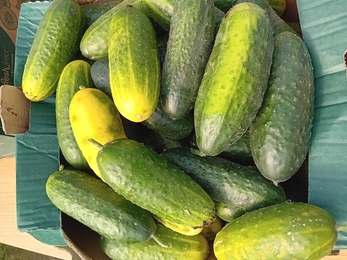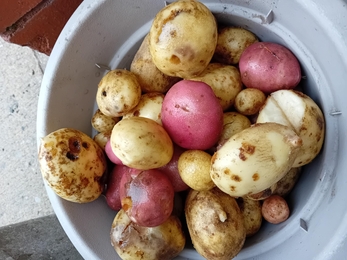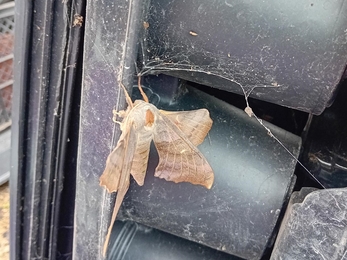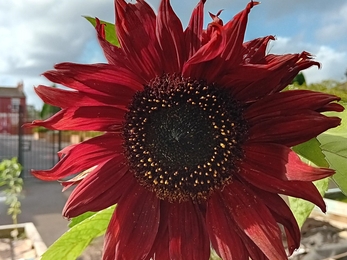
Cultivating curiosity at a Wilder School in Stockport.

Hi, my names Nick Harlow and I’m the Horticultural Lead at Reddish Hall School in Stockport. We’re a co – educational school catering for pupils aged 5 – 18 with complex educational needs, communication difficulties and challenging behaviour. My role is to show our young people the joys of horticulture whether that’s nurturing a plant from seed to flower, harvesting fresh organic fruit and vegetables or just to spend time outdoors in nature.
I joined the school in May this year and inherited quite an overgrown plot with weeds and brambles running wild but also with substantial raised beds, two big poly tunnels and a lot of potential! Every day we work towards developing the garden with the help of our young people and the integration of wildlife is a natural process in this. We grow everything organically and are currently in the process of installing a closed loop food waste system whereby the food waste from the canteen (both cooked and uncooked) will be collected by the pupils then added to the composts, turned into growing material then used on our vegetable beds to grow food which will be served to the school by our fantastic canteen staff!
Growing alongside nature has always been a passion of mine and this is something we’ve been instilling into the daily routine of our lessons. Whether that’s the development and maintenance of our wildflower section, planting pollinator friendly plants (see picture of assist Head Gardener Finley standing proudly next to the Buddleia he planted!) or the creation of different habitats to planting native trees around the site. We’re in a unique position of being in an urban residential site but also a short distance from Reddish Vale Country Park so we regularly see Swifts, Kestrels, Gulls and Herons flying over alongside evening visitors such as Bats and Foxes. Since the developing we’ve witnessed a broad range of insects, essential for the pollination of our edibles from Solitary Bees and Wasps to Poplar Hawk Moths and Five Spot Burnet Moths.
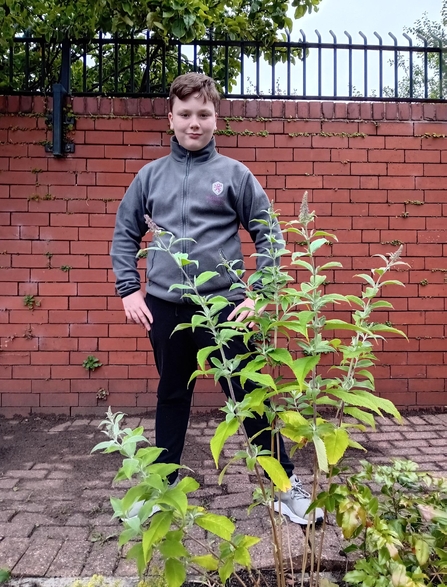
With the winter months approaching and the garden starting a period of dormancy it’s a great time to begin the building stage of the development. Bug hotels will be created to encourage greater biodiversity in our space whilst also being a great way to recycle unwanted garden items which would otherwise go to landfill (speaking of which see the picture of Jane, one of our Student Coach’s Eco – House, made with the young people from unwanted plastic materials from the school). Nesting boxes made by the pupils will go up around the site to encourage more birds into the garden, great for dealing with caterpillar infestations! And with the help of the Cheshire Wildlife Trust, we’re hoping to install a rainwater plant bed. A system of utilising water collected from the roof to filter through the plant bed, self-watering the plants whilst also diffusing the volume of water reducing the amount going through the drainage system hopefully going some way to reducing dangerous volumes in our waterways.
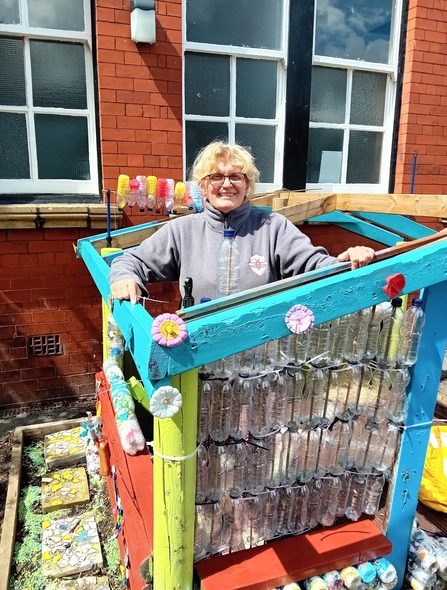
Becoming a Cheshire Wildlife Trust Wilder School is a great step for us to help establish a therapeutic area for our young people to work, socialise and play whilst integrating with the wildlife around them. I would urge any school that hasn’t joined yet to do so. :)

